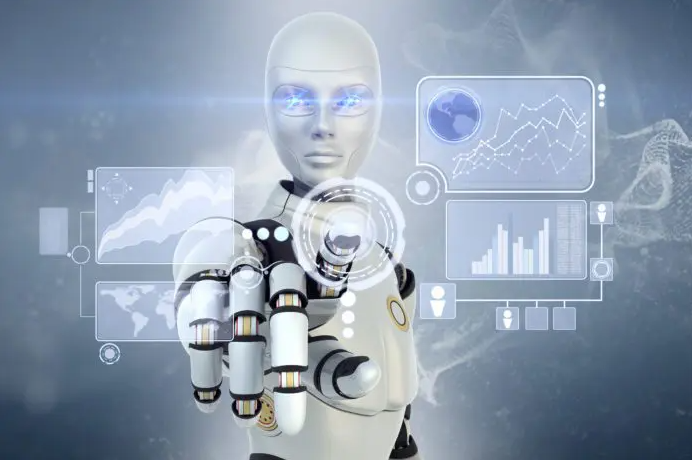AI has become increasingly important in social networks, particularly as bots, and has had a significant impact on how users interact and connect online. It has the potential to significantly impact and support the growth of businesses and startups. Here are several ways in which AI can be utilized to drive growth:

Personalized Customer Experiences: AI-powered tools can analyze customer data, preferences, and behavior to provide personalized experiences. By leveraging machine learning algorithms, businesses can offer tailored product recommendations, targeted marketing campaigns, and customized interactions, leading to increased customer satisfaction and loyalty.
Enhanced Decision-making: AI algorithms can process and analyze vast amounts of data quickly and accurately. This enables businesses to make data-driven decisions and identify valuable insights that can drive growth strategies. AI can help automate and optimize various business processes, such as inventory management, pricing strategies, and supply chain operations, leading to improved efficiency and cost savings.
Chatbots and Virtual Assistants: AI-powered chatbots and virtual assistants can handle customer inquiries, provide support, and assist with sales. These automated systems can handle routine customer interactions, freeing up human resources to focus on more complex tasks. Chatbots can be available 24/7, providing immediate responses and improving customer engagement.
Predictive Analytics: AI algorithms can analyze historical data to predict future trends, customer behavior, and market dynamics. By leveraging predictive analytics, businesses can make more accurate sales forecasts, optimize marketing campaigns, and identify new growth opportunities. This helps in strategic planning and resource allocation.
Improved Marketing and Advertising: AI can enhance marketing and advertising efforts by optimizing targeting, content creation, and campaign management. AI algorithms can analyze customer data, demographics, and online behavior to deliver highly personalized and relevant advertisements. Automated A/B testing can help optimize campaign performance and improve ROI.
Fraud Detection and Security: AI algorithms can analyze patterns and anomalies in large datasets to identify potential fraud or security breaches. By leveraging AI-powered systems, businesses can detect and prevent fraudulent activities, safeguard customer data, and enhance overall security.
Product Development and Innovation: AI can support businesses in product development and innovation processes. By analyzing market trends, customer feedback, and competitive landscapes, AI algorithms can provide insights for product ideation, optimization, and development. AI can also assist in automating research and development processes, accelerating innovation cycles.
Operational Efficiency: AI can optimize various operational processes, such as inventory management, supply chain logistics, and production scheduling. AI algorithms can analyze data to predict demand, optimize inventory levels, and streamline logistics, leading to cost savings, reduced waste, and improved operational efficiency.
Managing Big Data: With an immense amount of data generated daily on social media platforms, AI-powered bots play a crucial role in managing and processing this data. They can analyze user behavior, preferences, and trends, providing valuable insights to improve user experiences and deliver personalized content.
Content Generation: AI-powered bots are capable of generating text, images, videos, and even music. Generative AI models use algorithms to create unique and engaging content, assisting in streamlining content creation processes for social media campaigns. Bots like Lately and OpenAI's ChatGPT are examples of AI-driven tools that aid in creating effective content and responding to user queries.
Social Media Monitoring: AI bots can monitor social media platforms, scanning for keywords, mentions, and trends in real-time. This enables businesses to track brand reputation, identify customer sentiment, and promptly respond to inquiries or issues. AI bots can also provide automated customer support, ensuring timely and efficient interactions.
Ad Management: AI-powered bots can optimize ad campaigns on social media platforms by analyzing user data and targeting the right audience. They can identify relevant keywords, demographics, and interests, allowing businesses to deliver personalized ads and increase their effectiveness. AI bots help businesses achieve better ROI and ad performance.
User Engagement and Interaction: AI bots can engage with users on social media platforms through automated conversations. They can respond to queries, provide recommendations, and offer personalized suggestions based on user preferences. AI-powered chatbots can simulate human-like interactions, enhancing user experiences and increasing engagement.
AI-Generated Content: Social networks are exploring the use of AI-generated content to keep users engaged. For example, LinkedIn is sharing "AI-powered conversation starters" developed with the help of its editorial team. These posts aim to provoke discussions among users and may indicate a future trend of directly serving AI-generated content to users.
It's important to note that successful integration of AI requires careful planning, data management, and expertise. Businesses should also consider ethical considerations and ensure transparency, fairness, and accountability when utilizing AI technologies. Nonetheless, when implemented effectively, AI can provide significant growth opportunities for businesses and startups by leveraging data, automation, and intelligent decision-making capabilities.
AI-powered bots play a vital role in social networks by managing data, generating content, monitoring platforms, optimizing ad campaigns, and enhancing user engagement. As technology advances, AI will continue to transform the way social networks operate, offering more personalized experiences and efficient interactions for users.
Category: AI
Tags: Miscellaneous